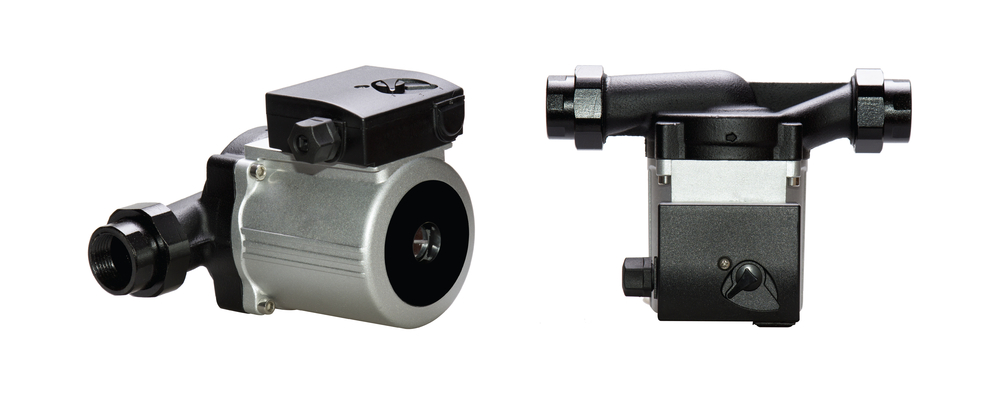A noisy circulating pump can be an annoying experience.
Circulating pumps are generally turned on all the time.
Any noise generated from them can be very irritating.
Circulating pump noises are pretty standard.
Even with popular brands like Grundfos, noises can happen in some instances.
Why is your Grundfos circulating pump making noise?
Pumps can be noisy for a plethora of reasons. These include air locking, problems with the bearing, incorrect installation, accumulation of dirt, seized internal components, etc. Each problem has its unique solution. But we need to understand what’s causing the noise for us.
Want to know how to deal with all these problems and fix a noisy circulating pump? Let’s begin!
Why is My Grundfos Circulating Pump Making Noises

A circulating pump could be noisy for a lot of reasons. Having an idea about Grundfos pump troubleshooting, in general, is very useful.
Here’s a list of the common reasons why your circulating pump might be making noise with solutions:
Your Pump is Airlocked
One of the most common reasons behind a noisy circulating pump is that it’s airlocked. Quite often, air can get into the system. This creates noise from the boilers, radiators and heating pumps.
In such cases, the air needs to be bled out from the system, and you’re good to go!
Solution
Fixing an airlocked pump is pretty simple. Most Grundfos pumps have a bleed screw to remove the excess air.
Carefully open the screw until you hear a hissing noise coming out of it. Keep the screw open until the sound stops. Wait for a few minutes and see water dribbling out of it.
Once the water dribbles out, all the air in your system has bled out. Now carefully close the screw and you’re good to go!
Incorrect Installation
If your pump keeps getting airlocked, it probably hasn’t been installed correctly. For example, your pump shaft might not be horizontal. As a result, it might cause air to get in and create a whining noise from the heating pump.
Solution
In this case, you must change the pump shaft’s position correctly. We recommend that you turn off your recirculating pump beforehand.
Once the pump has turned off, adjust the shaft and the bleed screw. Ensure the pump is horizontal and the screw is at the side. It could make a little noise even if the pump is a few degrees to the side. So, check that carefully.
Internal Components Might be Seized
Sometimes, your pump might have a constant humming noise or vibrations. In that case, there’s a chance that its internal components are seized.
Generally, the pump has internal components that need to move. But, if their motion is restricted, the energy is converted to noise. Deal with the seized component, and the sound will be gone.
Solution
Try finding out the source of the noise. Once you detect the part making the noise, slightly tap the side of the pump a few times. The tapping should free it up.
If you want a better solution, clean the pump carefully. There might be dirt blocking the pump, so get rid of it carefully.
Also, the bearing of the shaft might’ve worn out. This causes other components not to get enough space. Check the bearings of the pump, and if necessary, get a replacement.
Too Much Dirt
Your pump might get full of dirt at times and the passage might be blocked. This causes too much noise. This problem is more common if you don’t have a boiler filter.
Also, if your pump isn’t fitted on the right side, it can accumulate more dirt. So, it’s essential to clean and prevent dirt.
Solution
You need to disassemble the pump and get it cleaned in case of dirt. Too much dirt can damage the pump, so check for wear and tear.
Also, get a filter and attach it to the pump. This will catch the dirt and debris and prevent future dirt accumulation or blockage.
If you’re looking for a good filter, here’s our suggestion for the best out there:
| Product 1 | |
| Product 2 |
These filters are some of the best we could find for Grundfos pumps. These will improve your experience!
Speed Setting Problem
If your pump is old, chances are you’ve set the pump to maximum settings. Older pumps aren’t as efficient as the newer ones. So there is a bit of energy efficiency lost in the form of noise.
Generally, Grundfos pumps have three settings, and the highest setting might sometimes cause more noise.
Solution
The easiest solution, in this case, is to find the flow setting switch and reduce its setting. This would reduce noise as well as protect your pump from overheating.
Once you’ve reduced the setting, ensure you’re still getting the required output from your pump. Running a pump on reduced settings can also significantly reduce your electricity consumption.
These are the possible reasons your Grundfos pump might make noise. Keep these in check and you can deal with the noise without hassle.
FAQs
How to know if my circulator pump is working?
If your pump runs, you’d feel it getting warm once it has started. Afterwards, it’ll get hot when water is flowing through it. If the temperature doesn’t change, there might be some problem with it.
How long do Grundfos pumps last?
If handled carefully, a Grundfos pump could last 15-20 years before requiring any repair or replacement.
Will an airlock in the pump clear itself?
Airlocks might clear themselves if the lock is small. It’s risky, and keeping an airlock for too long can damage the pump. So, it’s better to deal with them immediately.